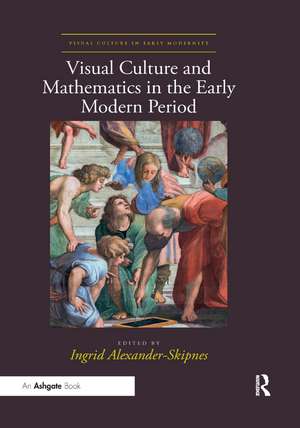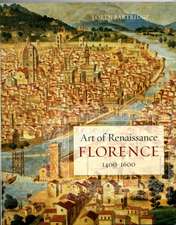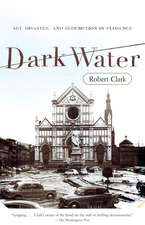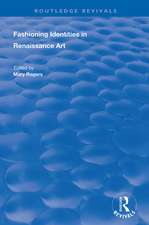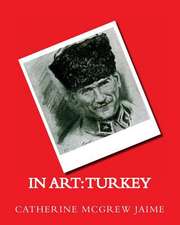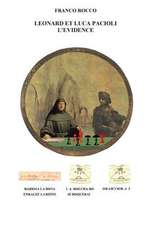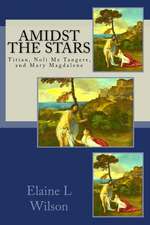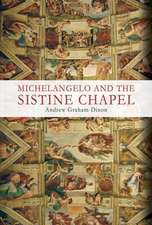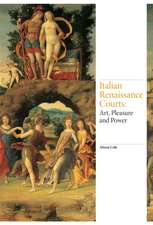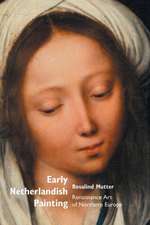Visual Culture and Mathematics in the Early Modern Period: Visual Culture in Early Modernity
Editat de Ingrid Alexander-Skipnesen Limba Engleză Paperback – 17 apr 2019
Toate formatele și edițiile
| Toate formatele și edițiile | Preț | Express |
|---|---|---|
| Paperback (1) | 412.41 lei 6-8 săpt. | |
| Taylor & Francis – 17 apr 2019 | 412.41 lei 6-8 săpt. | |
| Hardback (1) | 1061.81 lei 6-8 săpt. | |
| Taylor & Francis – 23 ian 2017 | 1061.81 lei 6-8 săpt. |
Din seria Visual Culture in Early Modernity
- 22%
 Preț: 324.16 lei
Preț: 324.16 lei - 18%
 Preț: 911.53 lei
Preț: 911.53 lei -
 Preț: 311.37 lei
Preț: 311.37 lei - 9%
 Preț: 1022.24 lei
Preț: 1022.24 lei -
 Preț: 312.12 lei
Preț: 312.12 lei -
 Preț: 356.69 lei
Preț: 356.69 lei -
 Preț: 313.67 lei
Preț: 313.67 lei -
 Preț: 432.98 lei
Preț: 432.98 lei - 12%
 Preț: 343.55 lei
Preț: 343.55 lei - 25%
 Preț: 324.16 lei
Preț: 324.16 lei - 25%
 Preț: 769.92 lei
Preț: 769.92 lei - 13%
 Preț: 338.33 lei
Preț: 338.33 lei - 17%
 Preț: 259.98 lei
Preț: 259.98 lei - 25%
 Preț: 326.11 lei
Preț: 326.11 lei -
 Preț: 471.08 lei
Preț: 471.08 lei - 28%
 Preț: 826.84 lei
Preț: 826.84 lei - 26%
 Preț: 819.90 lei
Preț: 819.90 lei - 28%
 Preț: 878.42 lei
Preț: 878.42 lei - 28%
 Preț: 829.69 lei
Preț: 829.69 lei - 25%
 Preț: 325.43 lei
Preț: 325.43 lei - 30%
 Preț: 853.03 lei
Preț: 853.03 lei - 13%
 Preț: 338.33 lei
Preț: 338.33 lei - 30%
 Preț: 830.92 lei
Preț: 830.92 lei - 16%
 Preț: 338.33 lei
Preț: 338.33 lei - 25%
 Preț: 826.01 lei
Preț: 826.01 lei - 30%
 Preț: 772.60 lei
Preț: 772.60 lei - 18%
 Preț: 1017.63 lei
Preț: 1017.63 lei - 30%
 Preț: 768.62 lei
Preț: 768.62 lei - 13%
 Preț: 338.33 lei
Preț: 338.33 lei - 30%
 Preț: 771.07 lei
Preț: 771.07 lei - 22%
 Preț: 324.16 lei
Preț: 324.16 lei - 30%
 Preț: 772.76 lei
Preț: 772.76 lei - 11%
 Preț: 347.33 lei
Preț: 347.33 lei - 31%
 Preț: 765.03 lei
Preț: 765.03 lei -
 Preț: 489.26 lei
Preț: 489.26 lei - 25%
 Preț: 822.91 lei
Preț: 822.91 lei - 12%
 Preț: 300.09 lei
Preț: 300.09 lei - 26%
 Preț: 820.73 lei
Preț: 820.73 lei - 25%
 Preț: 829.69 lei
Preț: 829.69 lei - 28%
 Preț: 826.84 lei
Preț: 826.84 lei - 30%
 Preț: 776.03 lei
Preț: 776.03 lei
Preț: 412.41 lei
Nou
Puncte Express: 619
Preț estimativ în valută:
78.91€ • 82.39$ • 65.31£
78.91€ • 82.39$ • 65.31£
Carte tipărită la comandă
Livrare economică 04-18 aprilie
Preluare comenzi: 021 569.72.76
Specificații
ISBN-13: 9780367334161
ISBN-10: 036733416X
Pagini: 204
Ilustrații: 36
Dimensiuni: 174 x 246 x 12 mm
Greutate: 0.36 kg
Ediția:1
Editura: Taylor & Francis
Colecția Routledge
Seria Visual Culture in Early Modernity
Locul publicării:Oxford, United Kingdom
ISBN-10: 036733416X
Pagini: 204
Ilustrații: 36
Dimensiuni: 174 x 246 x 12 mm
Greutate: 0.36 kg
Ediția:1
Editura: Taylor & Francis
Colecția Routledge
Seria Visual Culture in Early Modernity
Locul publicării:Oxford, United Kingdom
Public țintă
Postgraduate and UndergraduateCuprins
1. Introduction
Ingrid Alexander-Skipnes
Part I: The Mathematical Mind and the Search for Beauty
2. Renaissance Aesthetics and Mathematics
John Hendrix
3. Design Method and Mathematics in Francesco di Giorgio’s Trattati
Angeliki Pollali
4. Mathematical and Proportion Theories in the Work of Leonardo da Vinci and Contemporary Artist/Engineers at the Turn of the Sixteenth Century
Matthew Landrus
Part II: Artists as Mathematicians
5. Durer’s Underweysung der Messung and the Geometric Construction of Alphabets
Rangsook Yoon
6. Circling the Square: The Meaningful Use of Φ and Π in the Paintings of Piero della Francesca
Perry Brooks
Part III: Euclid and Artistic Accomplishment
7. The Point and Its Line: An Early Modern History of Movement
Caroline O. Fowler
8. Between the Golden Ratio and a Semiperfect Solid: Fra Luca Pacioli and the Portrayal of Mathematical Humanism
Renzo Baldasso and John Logan
9. Mathematical Imagination in Raphael’s School of Athens
Ingrid Alexander-Skipnes
Ingrid Alexander-Skipnes
Part I: The Mathematical Mind and the Search for Beauty
2. Renaissance Aesthetics and Mathematics
John Hendrix
3. Design Method and Mathematics in Francesco di Giorgio’s Trattati
Angeliki Pollali
4. Mathematical and Proportion Theories in the Work of Leonardo da Vinci and Contemporary Artist/Engineers at the Turn of the Sixteenth Century
Matthew Landrus
Part II: Artists as Mathematicians
5. Durer’s Underweysung der Messung and the Geometric Construction of Alphabets
Rangsook Yoon
6. Circling the Square: The Meaningful Use of Φ and Π in the Paintings of Piero della Francesca
Perry Brooks
Part III: Euclid and Artistic Accomplishment
7. The Point and Its Line: An Early Modern History of Movement
Caroline O. Fowler
8. Between the Golden Ratio and a Semiperfect Solid: Fra Luca Pacioli and the Portrayal of Mathematical Humanism
Renzo Baldasso and John Logan
9. Mathematical Imagination in Raphael’s School of Athens
Ingrid Alexander-Skipnes
Recenzii
"The book represents well the different ways in which art and mathematics became closely intertwined during the Renaissance, and how one discipline became an inspiration for the other. It builds on previous work by Martin Kemp, Judith Field and Alexander Marr and deserves a place in every collection interested in the relations of art and mathematics."
--British Journal for the History of Mathematics
"This book is an important scholarly contribution to the history of early modern art and its relation to science and mathematics."
--The British Journal for the History of Science
--British Journal for the History of Mathematics
"This book is an important scholarly contribution to the history of early modern art and its relation to science and mathematics."
--The British Journal for the History of Science
Notă biografică
Ingrid Alexander-Skipnes is Lecturer in Art History at the Kunstgeschictliches Institut at Albert-Ludwigs-Universität Freiburg, Germany. She is an Associate Professor Emerita, University of Stavanger, Norway.
Descriere
This volume makes its contribution by offering new interdisciplinary approaches that not only investigate perspective, but also examine how mathematics enriched aesthetic theory and the human mind.
